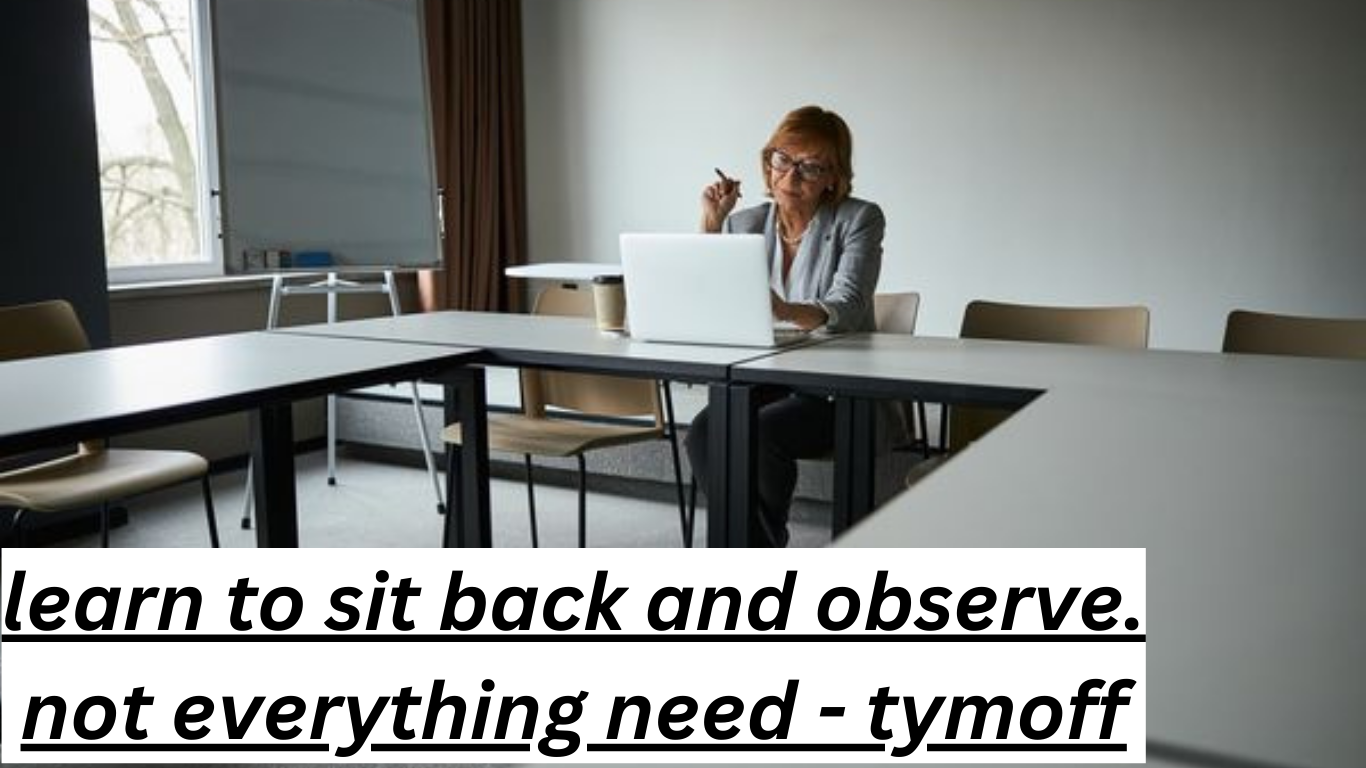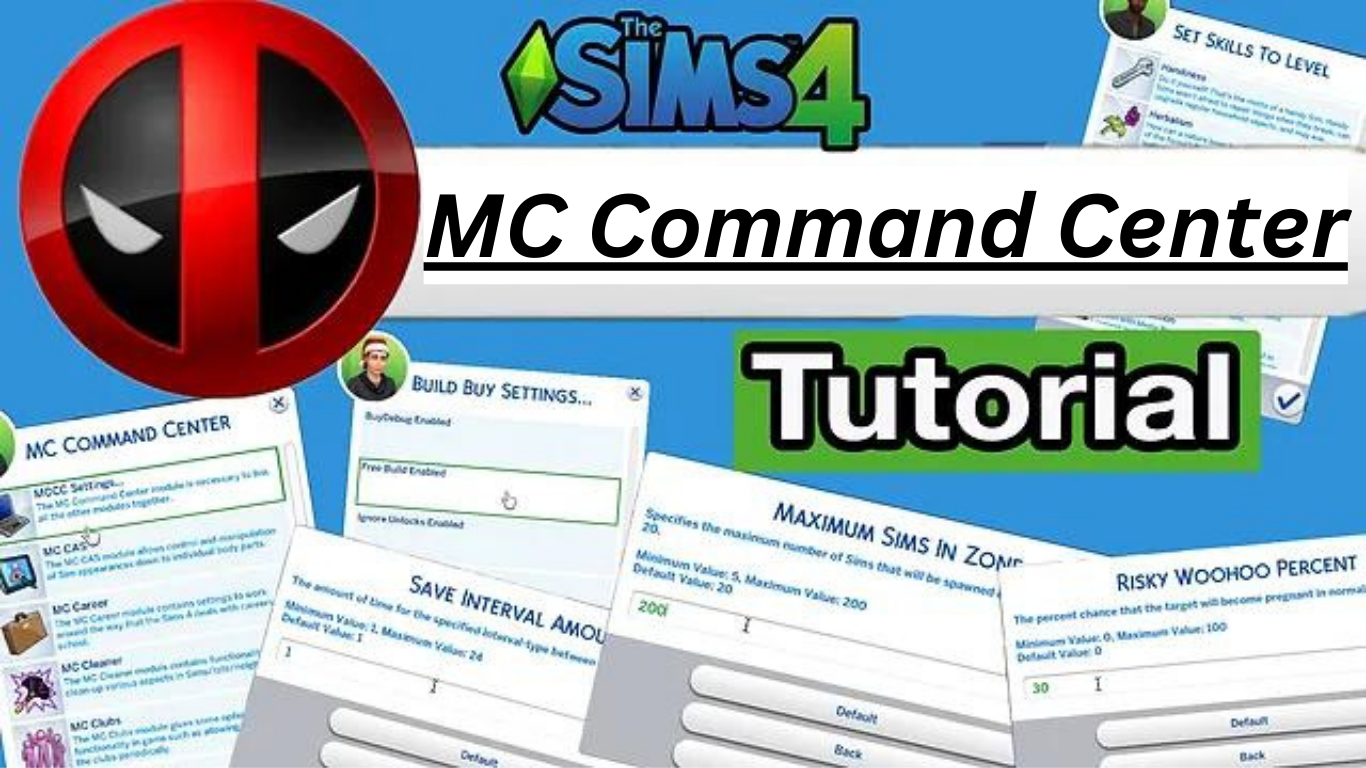Have you ever felt the constant pressure to always be doing something, achieving something, or fixing something? In a world that glorifies busyness and action, we often overlook the power of simply sitting back and observing. learn to sit back and observe. not everything need – tymoff for immediate action can bring about a sense of clarity, tranquility, and understanding in our hectic lives. Join me as we explore the art of sitting back and observing – because not everything needs an instant response.
What it Means to Sit Back and Observe
What does it truly mean to sit back and observe? It’s about taking a step back from the hustle and bustle of life, allowing yourself the space to simply watch and absorb. Observing means being present in the moment, attuned to your surroundings without feeling the need to constantly react or engage. It involves quieting your mind and tuning into the details that often go unnoticed in our fast-paced world. learn to sit back and observe. not everything need – tymoff.
When you sit back and observe, you open yourself up to new perspectives and insights that may have been overlooked in a rush to act. It’s about embracing patience and letting things unfold naturally, rather than trying to force outcomes or solutions. Observing allows for a deeper understanding of people, situations, and even yourself by providing a different lens through which to view the world.
In today’s society where action is often glorified, learning to sit back and observe can be seen as counterintuitive but incredibly valuable. So take a moment to pause, breathe, and simply observe – you might be surprised at what you discover when you give yourself permission to just be present in the moment.
Benefits of Observing
Observing the world around us can bring numerous benefits to our lives. By simply sitting back and taking in our surroundings, we open ourselves up to new perspectives and insights that we may not have noticed before. This practice allows us to gain a deeper understanding of people, situations, and even ourselves.
One of the key benefits of observing is the opportunity to learn from others. Watching how others navigate challenges or approach tasks can provide valuable lessons that we can apply in our own lives. Additionally, observation enhances our ability to empathize with others by allowing us to see things from their point of view.
Another advantage of being observant is the improved decision-making skills it fosters. By taking the time to carefully observe a situation before acting, we are better equipped to make informed choices that align with our goals and values. Furthermore, observation helps enhance our creativity by inspiring new ideas and sparking innovative thinking.
Incorporating observation into our daily routine can lead to personal growth, enhanced relationships, and increased overall well-being.
How to Practice Sitting Back and Observing
To practice sitting back and observing, start by finding a quiet space where you can be alone with your thoughts. Sit comfortably, close your eyes, and take deep breaths to center yourself. Focus on being present in the moment without any distractions.
Observe your surroundings without judgment or the need to intervene. Notice the details – the colors, sounds, smells, and textures around you. Pay attention to how you feel emotionally and physically as you observe.
Practice active listening when engaging with others. Instead of thinking about what to say next, truly listen to what the other person is saying. Observe their body language and tone of voice for deeper understanding.
Try journaling about your observations to reflect on them later. Writing down your thoughts helps solidify them in your mind and allows for further introspection.
Remember that practicing observation is a skill that takes time to develop. Be patient with yourself as you learn to sit back and observe. not everything need – tymoff without always needing to react immediately.
Applying Observation in Everyday Life
Incorporating observation into your daily routine can lead to profound insights and a deeper understanding of the world around you. Start by consciously taking moments throughout your day to simply observe without judgment or the need for immediate action.
When interacting with others, pay attention to their body language, tone of voice, and facial expressions. These subtle cues can offer valuable information about their emotions and intentions.
In nature, observe the intricate details of plants, animals, and the environment. Notice how everything is interconnected and constantly evolving in its own unique way.
Practice mindfulness by observing your thoughts and feelings without getting attached to them. This awareness can help you make more intentional decisions and respond thoughtfully in challenging situations.
By honing your observational skills in everyday life, you’ll cultivate a heightened sense of awareness and appreciation for the beauty that surrounds you.
Overcoming the Need for Constant Action
In a world that glorifies busyness and constant action, it can be challenging to embrace the art of sitting back and observing. The pressure to always be doing something can lead to burnout and feelings of inadequacy if we’re not constantly on the move.
Overcoming the need for constant action requires a shift in mindset. It’s about realizing that taking a step back doesn’t equate to laziness or lack of ambition. In fact, it allows us to gain clarity, insight, and perspective that rushing through tasks may hinder.
By practicing mindfulness and being present in the moment, we can cultivate patience and learn to appreciate the beauty of stillness. This doesn’t mean abandoning goals or ambitions; rather, it means approaching them with intention and purpose instead of frantic energy.
Learning to sit back and observe doesn’t mean being passive or indifferent—it means being strategic and intentional in our actions. It’s about finding balance between doing and being, productivity and relaxation.
Conclusion: Embracing the Power of Observation
Observation is a powerful tool that we often overlook in our fast-paced lives. By learning to sit back and observe, we can gain valuable insights, make better decisions, and cultivate a sense of mindfulness. So next time you feel the urge to jump into action, remember that not everything needs an immediate response. Take a moment to sit back, observe your surroundings, and embrace the power of observation. It may just lead you down a path of greater understanding and growth.




